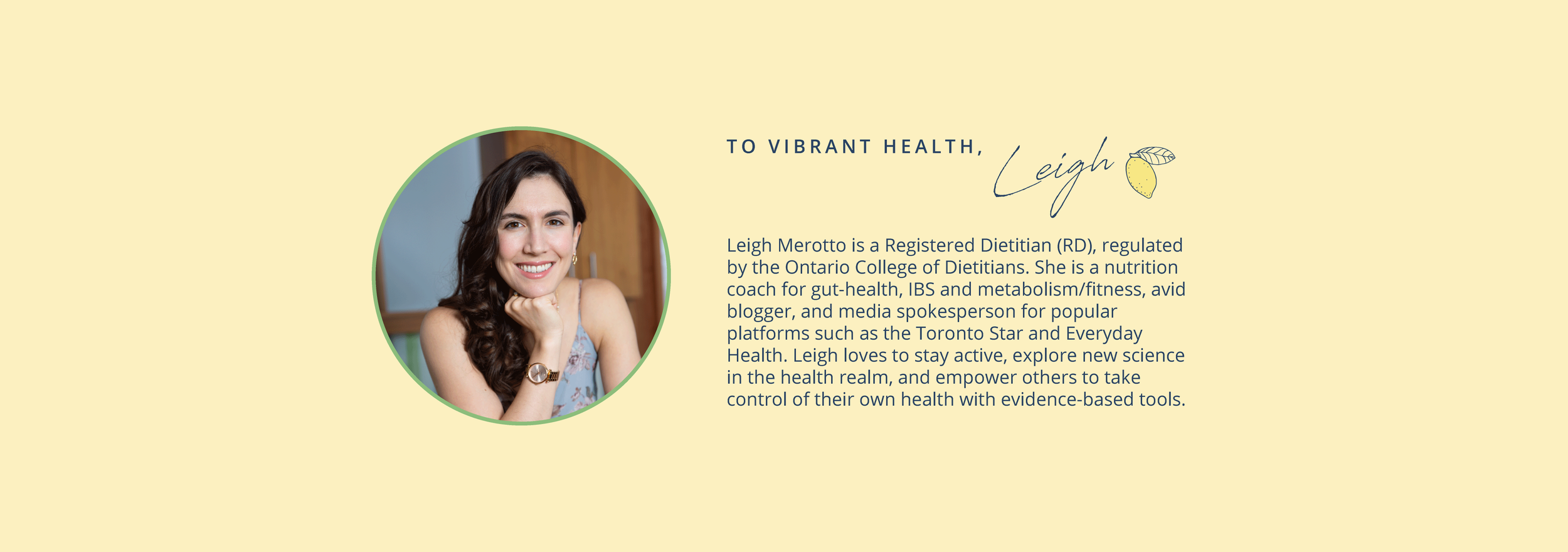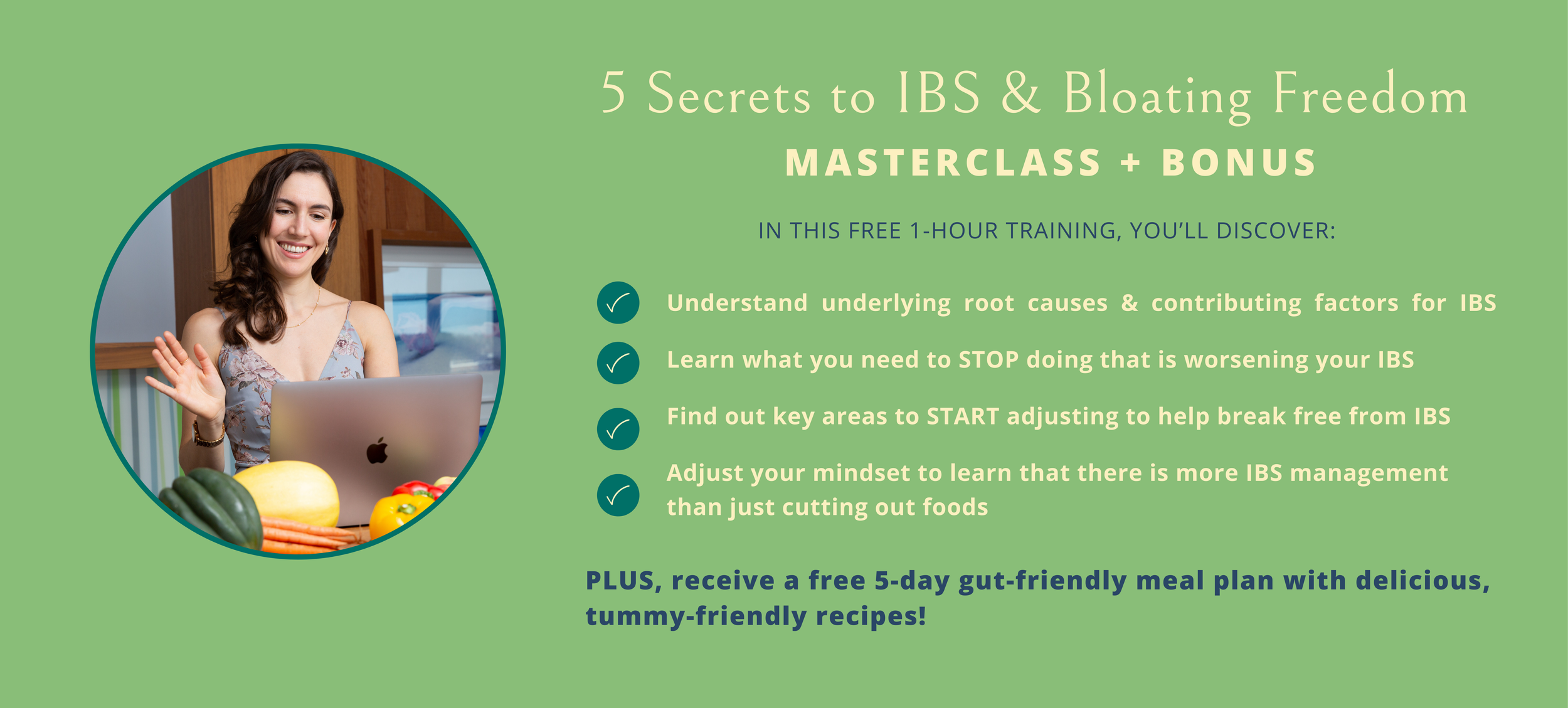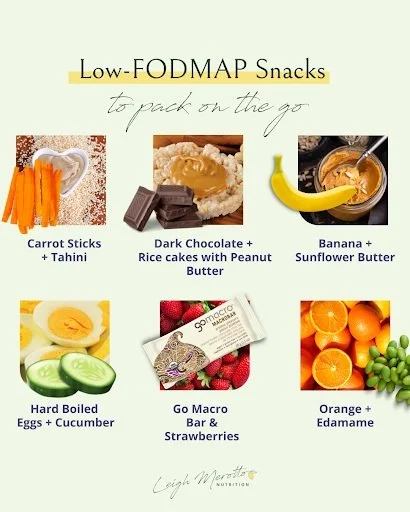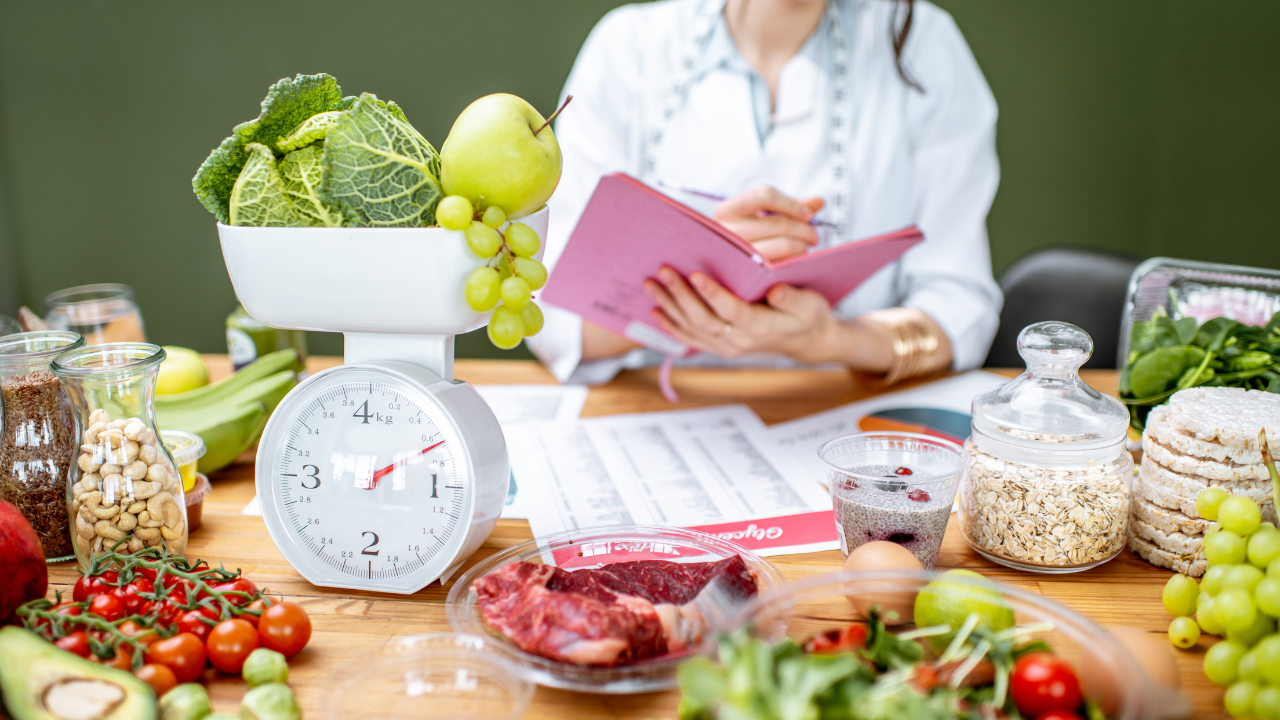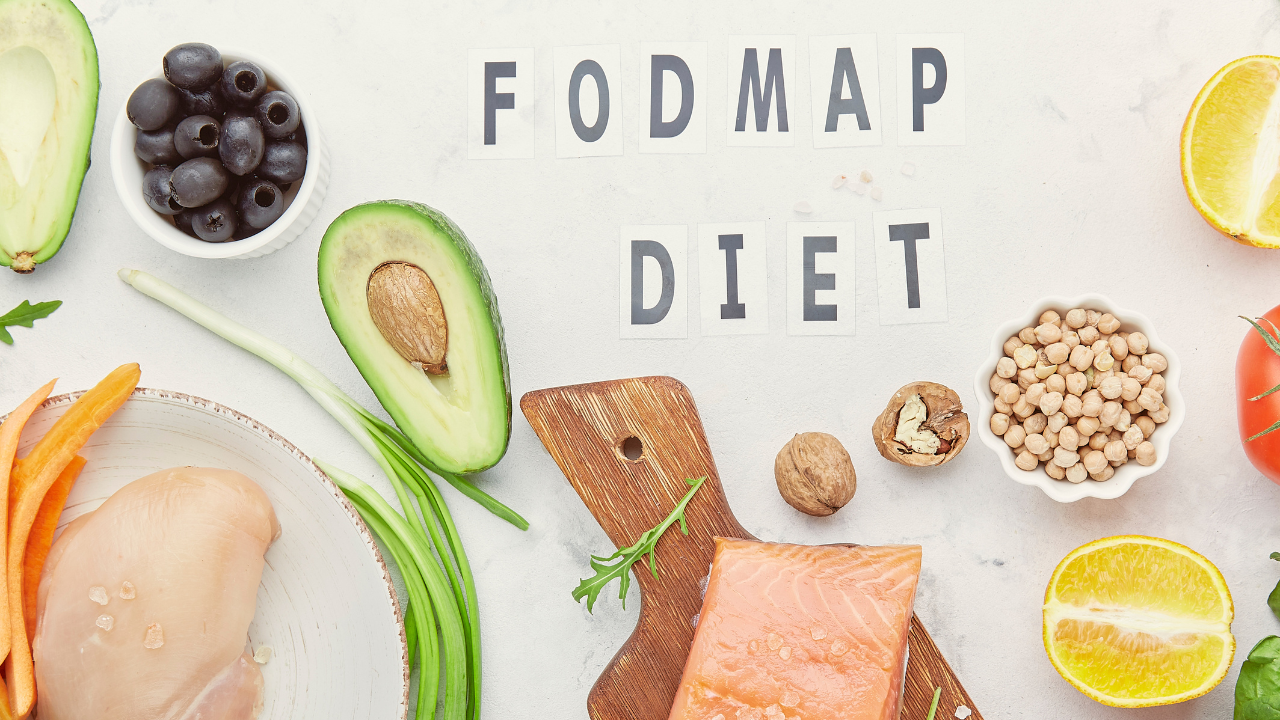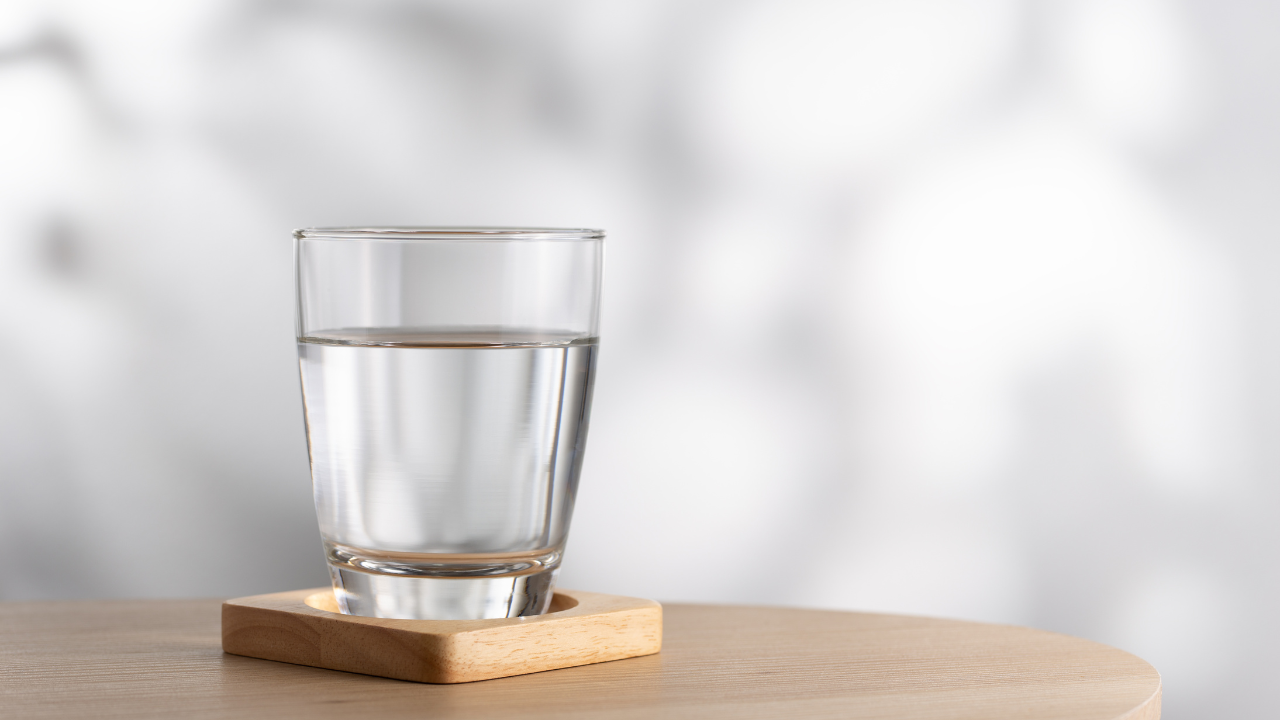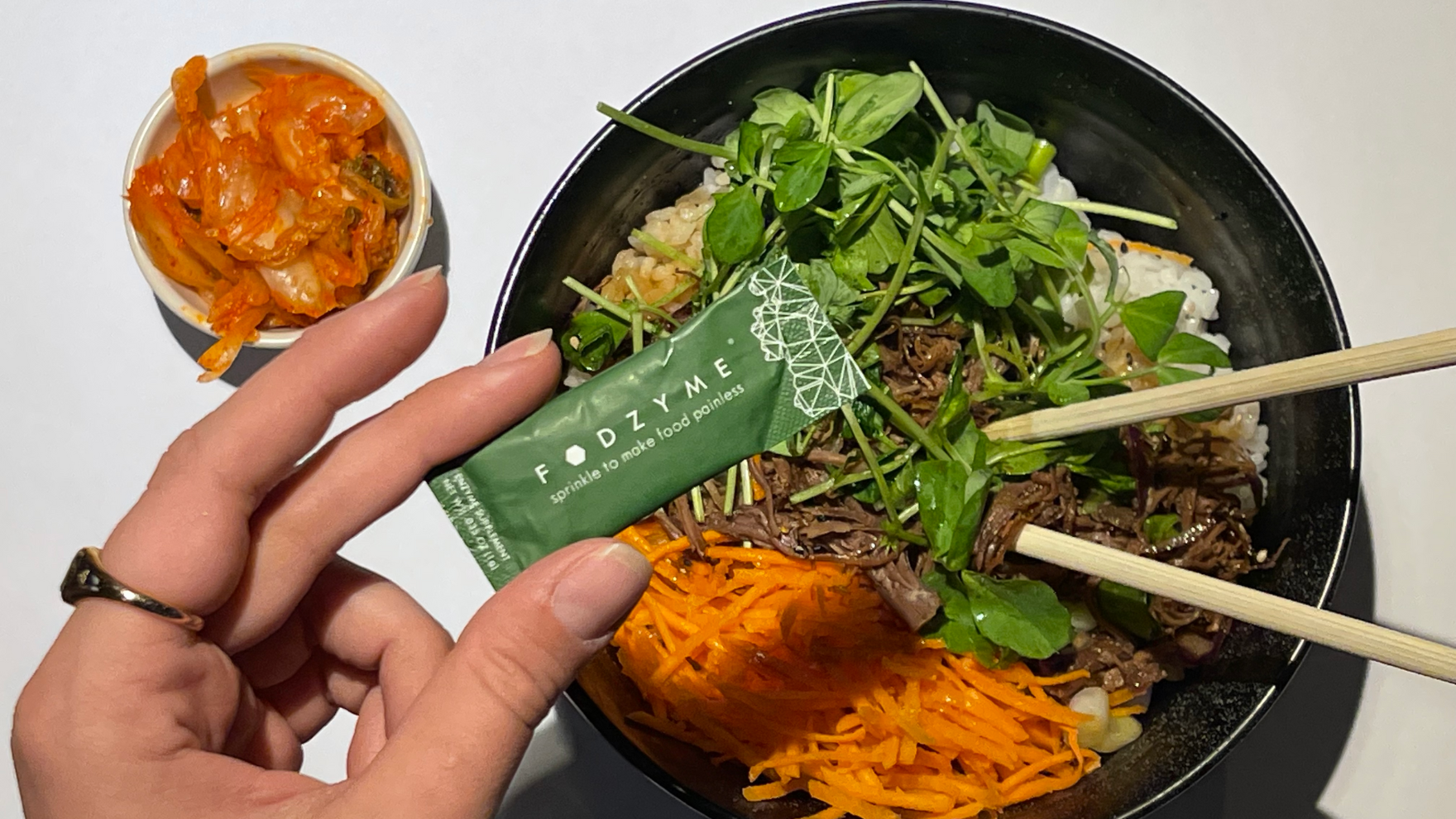Strategies For Good Digestion and Thriving With IBS During the Holiday Season
This year will likely feel a bit more ‘normal’’ than the past couple of years, and you know what that means… Back to back holiday parties, dinners and festivities! I’m sure your head is spinning already…
For many of you, this busy time of year can certainly stir up some anxiety and stress. You might be worried about experiencing a flare-up when eating more food away from home. In addition, if you’ve been consistent with your nutrition goals, you may be worried that moving off of your usual eating may off-set your progress with your fitness and wellness.
However, just because this time of the year is inherently busier and there is more eating out, it need not be a time of extra stress and worry. Rather than seeing it as an inevitable time to feel poorly and experience a huge increase in gut symptoms and feeling “off”, see it as a time to practice balance and equip yourself with strategies that work for you.
Rather than waiting until January 1st to hit the ‘reset’ button (which can be difficult!) I recommend focusing on feeling well all the time, and finding ways to keep on feeling good even when you may be off your usual routine. With this being said, don’t forget to give yourself some extra grace during this time of year - the holiday season isn’t all year long, and it’s also a time to relax and enjoy time with loved ones.
I’ve compiled some key strategies to support a happy gut and keep you feeling well during the holiday season.
Plan Ahead
Are you traveling for the holidays? Before you leave, plan out what you need to bring to help keep you on top of your health during the time you’re away. This includes packing your supplements, organizing a space to get your movement in, bringing a water bottle, and even some gut-friendly snacks to pack along. Rather than going in blindly, take some time (yes, even 20-30 minutes to write out what to pack with you to help maintain your habits while away).
If you’ll be eating at a restaurant, plan ahead and look at the menu to decide on what options would work best for you. I recommend aiming for half your meal as veggies, one quarter protein and one quarter complex carbs.
For low-FODMAP & IBS friendly options, look for:
Veggies: leafy greens like spinach, carrots, cucumber, broccoli, green beans, oyster mushrooms, and spaghetti squash
Proteins: chicken, turkey, firm tofu, eggs, tempeh, edamame and lean pork or beef
Complex Carb: wild and brown rice, quinoa, buckwheat, rice pasta, squash, pumpkin
Find Balance & Eat Mindfully
Rather than going all out and enjoying allllllll the indulgences in one sitting (which will likely set you up for a full blown flare-up), I’d recommend choosing 1-2 indulgences per meal. This includes any foods that will likely trigger gut symptoms and are less ‘nutrient dense’: fried/greasy foods, creamy sauces, alcohol, refined carbs (breads, pastas), and desserts.
When you do eat the indulgent food, enjoy it mindfully. This means slowing down and savoring the experience.
Pack Gut-Friendly Snacks
What happens when you’re out shopping for gifts and forget to eat? Yes, you get HANGRY! And this means you’ll reach for whatever is around - whether it’s something gut-friendly or not. Rather than letting yourself get to empty, pack some snacks on your trips.
Here are some of my top gut-friendly & protein rich snack options:
P.S. Go Macro Bars are one of my favourite protein bars because they are also one of the few Low-FODMAP (aka low bloat) protein snack bars available!
They have so kindly created a discount code for me to share with my community!
Use my code 'LEIGHMEROTTO_RD' at check-out for 25% off your online order of GoMarco Bars.
Maintain a Schedule
Our body works on an internal clock known as the Circadian Rhythm (CR), which is responsible for sleep and wakefulness, hormones, digestion and metabolism. This means it’s actually very important to maintain a consistent schedule each day to help support your CR. While no one is perfect, trying to maintain the same sleep and wake-up time, as well as approximate eating times each day can help to support this internal clock. Try to keep within a 1-hour range of this each day, especially the sleep schedule when you are traveling and/or have more holiday parties to go to. This can help your digestive system especially to stay regular, and also ensure normal hunger and fullness cues.
I recommend writing this out so that you have an idea of what works for you, and what to aim for.
For example:
Wake-up at 7am
Breakfast: 8am
Lunch: 12pm
Snack: 3pm
Dinner: 6pm
Sleep: 11pm
Eat Regularly
Eating every 3-4 hours and having a source of protein (20-30 g) at each of these times can help control cravings and prevent you from over-eating or indulging. When life gets busier how can you stick to this? Keep snacks in your bag and desk at work; your favorite protein bar, plain nuts, etc – something easy to bring and quick to eat. Meal prep is another tool that can help keep your nutrition on track during busy times.
Remember: never head to a holiday party on an empty stomach; you are much more likely to over-eat on foods that may trigger symptoms when you are starving. Plus, overeating is also a huge trigger for bloating and distention.
Aim to eat regular meals and snacks leading up to a holiday event, and focus on lean protein at these meals - eggs, firm tofu, tempeh, chicken, turkey, edamame, protein powder and 1-% Greek yogurt.
Set Boundaries
If you’ve been following along with me for a while, you’ll know that the importance of gut-brain support is very important to me. Why? Because the health of our gut goes past the food we consume; our stress levels, nervous system, and gut-brain connection play a critical role in the health of our microbiome and digestive tract.
We know this time of year CAN be stressful - in addition to worrying about flaring up gut symptoms, you’re busy thinking about meeting year end deadlines for work, finding the right gifts, planning meals, organizing travel plans, and the list goes on!
To help support your body during this time, I would recommend to set yourself boundaries. Rather than burning out, consider what you can REALISTICALLY commit to. Carve out a free day or afternoon each week, or instead of saying you’ll bring a homemade dish to every party, maybe you take it easy and pick up a good quality salad or veggie tray to a few of them to save your stress.
Support Your Vagus Nerve
As related to the above, I’d also recommend to focus on supporting your vagus nerve each day to help improve stress tolerance and resilience.
The Vagus Nerve is one of the biggest nerves connecting your gut and brain and sends signals in both directions, and is essential for digestion. When it’s overworked or dysfunction, it can impact digestive processes. Incorporate at least one activity each day that supports your vagus nerve, such as:
Cold showers
Meditation
Yoga
Mindful walking
Journalling
For more on supporting your vagus nerve, see my blog post here.
Personally, my day always starts off with a no-screens morning routine that consists of 10-20 minutes of sun exposure, 60-75 minutes of activity (strength training, running or yoga) and then a cold shower. This helps support my mindset and stress tolerance for the day. I’d encourage you to consider incorporating some activities that support your mental health each day as well!
Eat Low/Moderate FODMAP
If you’ve been following the low-FODMAP diet or worked through reintroductions, I’d suggest keeping any foods that are at home low-FODMAP friendly. This way if you do go out and have a higher FODMAP meal, it will help to reduce the impact on your gut.
If you haven’t started a low-FODMAP diet for your IBS and gut symptoms, we don’t recommend doing this on your own. Please reach out for support with a specialized Dietitian like myself to ensure you are doing it properly.
You may want to read: The Importance of Working with a Specialized Dietitian Before Starting a Low FODMAP Diet
Hydrate
Hydrate! Water acts like a cleanser for our bowels - it helps flush out toxins and food waste, and keeps our bowels healthy. Having daily bowel movements is key to reducing bloating and distention, as well as energy levels, and drinking water daily helps to support this.
Aim to have 1 L per 50 lb of body weight of fluids per day, and more if you sweat often and are active.
If you plan to be drinking (alcohol) later in the night, this is especially important. Aside from helping us with energy levels and performance, staying hydrated can help reduce our chances of a nasty hangover and feeling sluggish the next day. Aim to have 1 additional glass of water for every alcoholic drink.
For tips on consuming alcohol, check out my blog posts on the Impact of Alcohol on Our Gut and Tips to Drink Mindfully.
Try FODMAP Enzymes
Have you heard of FODMAP Enzymes? These are special enzymes that help you to improve your tolerance to the FODMAP sugars Lactose, Fructans and GOS. They can be great for additional use if these FODMAP sugars are triggers for you (foods like regular dairy, garlic, onions, beans, wheat and ripe bananas).
If you’re interested in trying them out, I recommend FODZYME as my top choice for FODMAP Enzymes!
Use my code LEIGHMEROTTO_RD at checkout for 10% off your first order online at www.FODZYME.com
However, as alluded to above - there are more triggers for gut symptoms than simply FODMAPS - including stress, poor sleep, lack of water, constipation, and overeating portions.
Closing Thoughts
Lot’s of considerations here! If you’re feeling stuck and aren’t even sure what habits you need to have in place to support your gut-health and fitness, please reach out. Apply for coaching if you’re looking for 1-1 guidance on your journey and we can work out a plan that’s right for you.
Have a wonderful holiday season!
